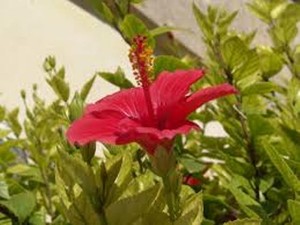23 Dec Wed 2015
LOBELIA IS A TOXIC HERB
LOBELIA (Lobelia inflata), Other Names: Asthma Weed, Bladderpod, Emetic Herb, Gagroot, Herbe à Asthme, Indian Tobacco, Lobelia inflata, Lobélie, Lobélie Brûlante, Lobélie Enflée, Lobélie Gonflée, Pukeweed, Tabac Indien, Vomit Wort, Wild Tobacco.
Lobelia is a plant. The above ground parts are used to make medicine.
Lobelia got its popularity, here in the United States, through the herbalist Samuel Thomson in the early nineteenth century. Lay herbalists, and patients who later followed his medical theories, used lobelia freely as an emetic, antispasmodic, asthma treatment, and childbirth aid without regard for potential toxicity (Griggs, Thomson 1831; Colby; Cook). By 1840, about one-fifth of the population of the United States used Thomsonian herbalism, including the unrestricted use of lobelia, as their primary care medicine (Thomson; Griggs). At least one medical school in the United States (The Physiomedicalist Institute in Chicago) taught the use of lobelia in unrestricted doses without regard for toxicity. (Medical Herbalism Journal for the Clinical Practitioner Lobelia toxicity: A literature reviewby Paul Bergner Medical Herbalism 10(1-2);15-26)
Lobelia was listed as an official drug botanical from 1820 to 1936 and appeared in the National Formulary until 1960. However, we all know that in the last 25 years scientists have taken a greater interest in the research of using herbs. We also need to remember that our earth has undergone changes on a global scale since the 1940’s, much of which has been extremely harmful for both humans and animals.
As herbalists, we are the forerunners of using herbs, and need to keep up with new information on herbs. If those who don’t know what they are doing, use lobelia, watch out. To quote Joseph E. Myers in his book The Herbalist written way back in 1918, “Lobelia is too dangerous for internal use by the unskilled” (page 75). Using Lobelia externally can be even worse, as herbs can absorb through the skin at a much faster rate that taken internally.
Lobelia is considered a potentially toxic herb. It can cause serious side effects, such as profuse sweating, nausea, vomiting, diarrhea, tremors, rapid heartbeat, disturbed hearing and vision, mental confusion, convulsions, hypothermia, coma, and possibly even death. People with high blood pressure, heart disease, liver disease, kidney disease, tobacco sensitivity, paralysis, seizure disorder, and shortness of breath, and those recovering from shock should not take lobelia. Lobelia can irritate the GI tract. Lobelia may make symptoms worse for people with ulcers, Chron's disease, inflammatory bowel disease, or intestinal infections. (2,3)
Now, who needs that? There are plenty of herbs that are safe for us to use. Why use something that might harm you?
1] Meyers, The Herbalist, p. 74; Chevallier, The Encyclopedia of Medicinal Plants; p. 108; Lust, The Herb Book, p. 259; Foster and Duke, Eastern/Central Medicinal Plants, p. 208.
[2] Hylton, The Rodale Herb Book, Appendix A, p. 496; Grieve, A Modern Herbal, p. 495.
[3]http://www.naturalopinion.com/report/HtmlPages/Lobelia.htm; http:metagenics.com/resources/imc/OneMedicineProf/ProfHerbs/Lobelia.html
Dr. Christopher’s Herbal Legacy
webmd
The Complete Guide to Herbal Medicines by Charles W. Fetrow and Juan R. Avila copyright 1999
Medical Herbalism Journal for the Clinical Practitioner Lobelia toxicity: A literature review by Paul Bergner Medical Herbalism 10(1-2);15-26

